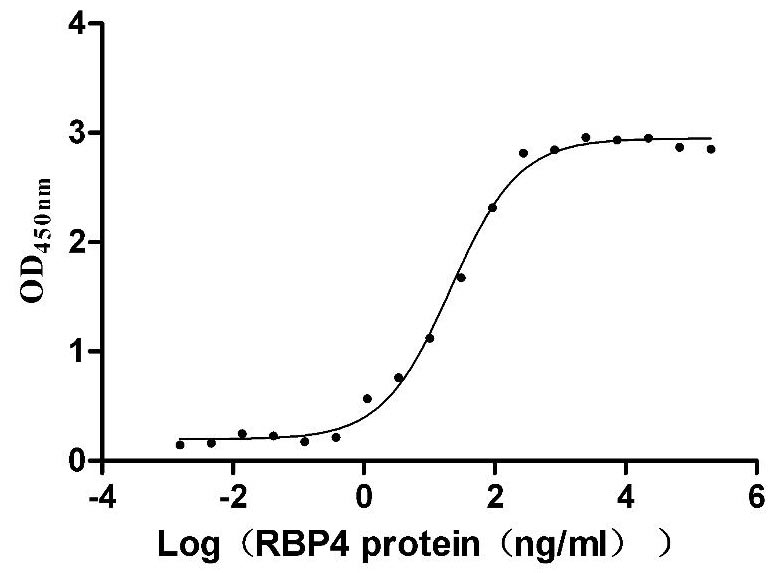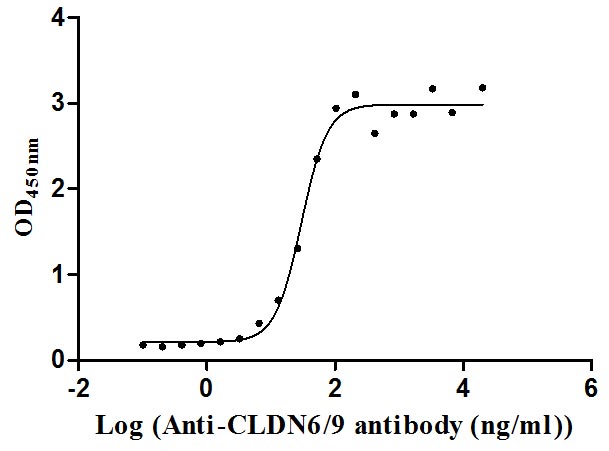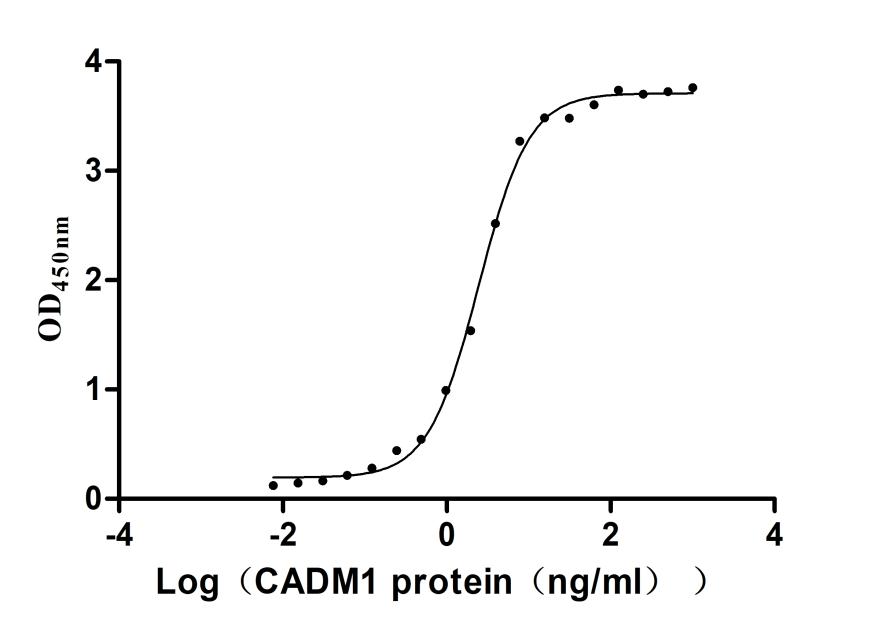Proteinase K Recombinant Protein
In Stock-
货号:CSB-AP361972TIQ
-
规格:¥270
-
图片:
-
SDS-PAGE
(Tris-Glycine gel) Discontinuous SDS-PAGE (reduced) with 5% enrichment gel and 15% separation gel.
According to the left SDS-PAGE image, the purity of Proteinase K is 95%+ and the molecular weight is 28.9 kDa. -
Detect Nucleic acid residue by agarose gel electrophores
-
Detect DNase residue by agarose gel electrophores
-
Detect RNase residue by agarose gel electrophores
-
Using the absorbance A275 as the vertical axis and different concentrations of tyrosine as the horizontal axis, a standard curve was drawn, and the enzyme activity was calculated >30U/mg. Unit definition:One unit is defined as the amount of enzyme that catalyzes the formation of 1 umol of tyrosine per minute at pH 7.5 at 37°C
-
The Enzyme Activity Stability of Proteinase K
The Proteinase K powder was stored at 4℃. And its enzyme activity was assayed every month over the past year.
The left chart shows how its enzyme activity changes in a year. It turns out the enzyme activity is maintained more than 95%, which indicates that proteinase K is very stable. -
The Proteinase K activity comparison of 3 vendors and CUSABIO
CUSABIO performed a Proteinase K activity comparison test. As the left chart shows, the activity of CUSABIO Proteinase K is better than that of the 3 vendors under the same testing conditions.
-
-
其他:
产品详情
-
纯度:Greater than 95% as determined by SDS-PAGE.
-
生物活性:Using the absorbance A275 as the vertical axis and different concentrations of tyrosine as the horizontal axis, a standard curve was drawn, and the enzyme activity was calculated >30U/mg.
-
基因名:PROK
-
Uniprot No.:
-
别名:Endopeptidase K,Tritirachium alkaline proteinase
-
种属:Tritirachium album (Engyodontium album)
-
分子量:28.9 kDa
-
产品提供形式:Lyophilized powder
Note: We will preferentially ship the format that we have in stock, however, if you have any special requirement for the format, please remark your requirement when placing the order, we will prepare according to your demand. -
缓冲液:If the delivery form is liquid, the default storage buffer is Tris/PBS-based buffer, 5%-50% glycerol.
Note: If you have any special requirement for the glycerol content, please remark when you place the order.
If the delivery form is lyophilized powder, the buffer before lyophilization is Tris/PBS-based buffer, 6% Trehalose, pH 8.0. -
复溶:We recommend that this vial be briefly centrifuged prior to opening to bring the contents to the bottom. Please reconstitute protein in deionized sterile water.We recommend to add 5-50% of glycerol (final concentration) and aliquot for long-term storage at -20°C/-80°C. Our default final concentration of glycerol is 50%. Customers could use it as reference.
-
储存条件:Store at -20°C upon receipt, aliquoting is necessary for mutiple use. Avoid repeated freeze-thaw cycles.
-
保质期:The shelf life of the lyophilized form is 24 months at -20°C/-80°C, 18 months at 4°C, and 12 months at room temperature.
-
货期:Basically, we can dispatch the products out in 3-7 working days after receiving your orders. Delivery time may differ from different purchasing way or location, please kindly consult your local distributors for specific delivery time.
-
注意事项:Repeated freezing and thawing is not recommended.
-
产品描述:
Proteinase K, originally isolated from the mold Tritirachium album, is a serine protease with broad substrate specificity and relatively high proteolytic activity. It preferentially cleaves ester and peptide bonds adjacent to the C-termini of hydrophobic, aliphatic, or aromatic amino acids. CUSABIO's recombinant proteinase K is highly pure determined by SDS-PAGE and reached up to 95%. It is characterized by high purity, sterility, no bio-burden, and no presence of DNAse, RNAse, DNA, and RNA contaminants. Its enzyme activity was calculated >30U/mg using the absorbance A275 as the vertical axis and different concentrations of a tyrosine as the horizontal axis. The working concentration of proteinase K, usually determined by the temperature, PH, and whether the buffer used contains SDS and urea, is 20mg/mL. This recombinant proteinase K protein is in-stock now.
Proteinase K has a wide range of applications. In nucleic acid extraction and isolation, proteinase K can be used to degrade Dnase/Rnase and DNA-bound histones and lyse cells or tissues. It also digests protein impurities especially endotoxin and separates target nucleic acids from proteins in biological samples, thus improving the purity and safety of nucleic acids and production efficiency. The nucleic acids isolated by proteinase K is often used for the amplification reaction. Denaturing agents such as SDS (1%) can increase the enzymatic activity of proteinase K. In in-situ hybridization, it removes the proteins around the target DNA to facilitate probe infiltration and improves detection sensitivity. Proteinase K is also used to analyze the membrane structure through the modification of proteins on the cell surface. The nucleic acid-based real-time reverse transcriptase-polymerase chain reaction (RT-PCR) test is the primary tool to diagnose the SRAS-CoV-2 infection. Proteinase K is often used to remove unwanted proteins present in the nasal/pharyngeal swab samples and inactivate nucleases that could degrade DNA or RNA during isolation and purification procedures, thus increasing the yield of extracted RNA and improving the detection of viral RNA by RT-PCR.
-
Datasheet & COA:Please contact us to get it.
相关产品
问答及客户评论
蛋白酶K粉末怎样溶解?
我们蛋白酶K的长期储存温度是多少?
对于液体蛋白酶K和粉末蛋白酶K,反复冻融会影响它们的活性吗?对哪个的影响更大?
蛋白酶K的推荐工作浓度是多少?
蛋白酶K活性的最适温度是多少?怎样灭活蛋白酶K?
EDTA可以使蛋白酶K失活吗?
靶点详情
-
功能:Hydrolyzes keratin at aromatic and hydrophobic residues.
-
蛋白家族:Peptidase S8 family
Most popular with customers
-
Recombinant Human Angiopoietin-2 (ANGPT2) (Active)
Express system: Mammalian cell
Species: Homo sapiens (Human)
-
Recombinant Mouse Transthyretin (Ttr) (Active)
Express system: Mammalian cell
Species: Mus musculus (Mouse)
-
Recombinant Human Claudin-9 (CLDN9)-VLPs (Active)
Express system: Mammalian cell
Species: Homo sapiens (Human)
-
Recombinant Human Cytotoxic and regulatory T-cell molecule (CRTAM), partial (Active)
Express system: Mammalian cell
Species: Homo sapiens (Human)

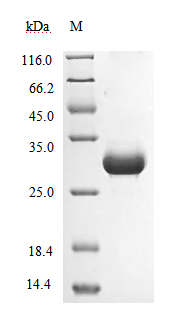
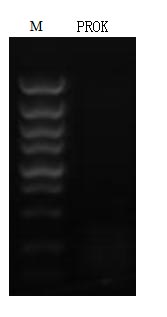
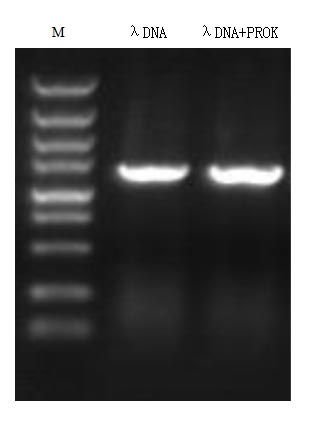
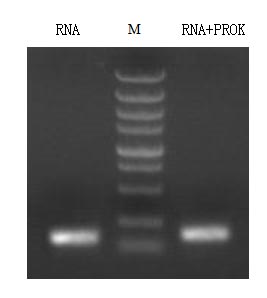
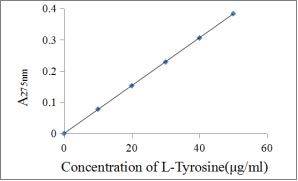
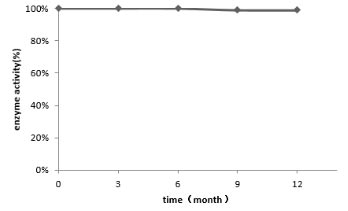
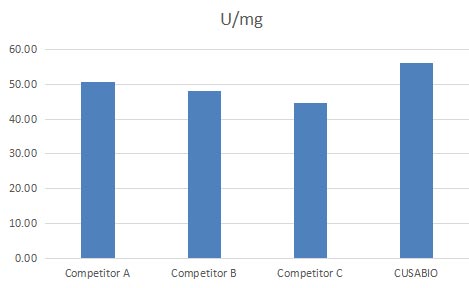

-AC1.jpg)
